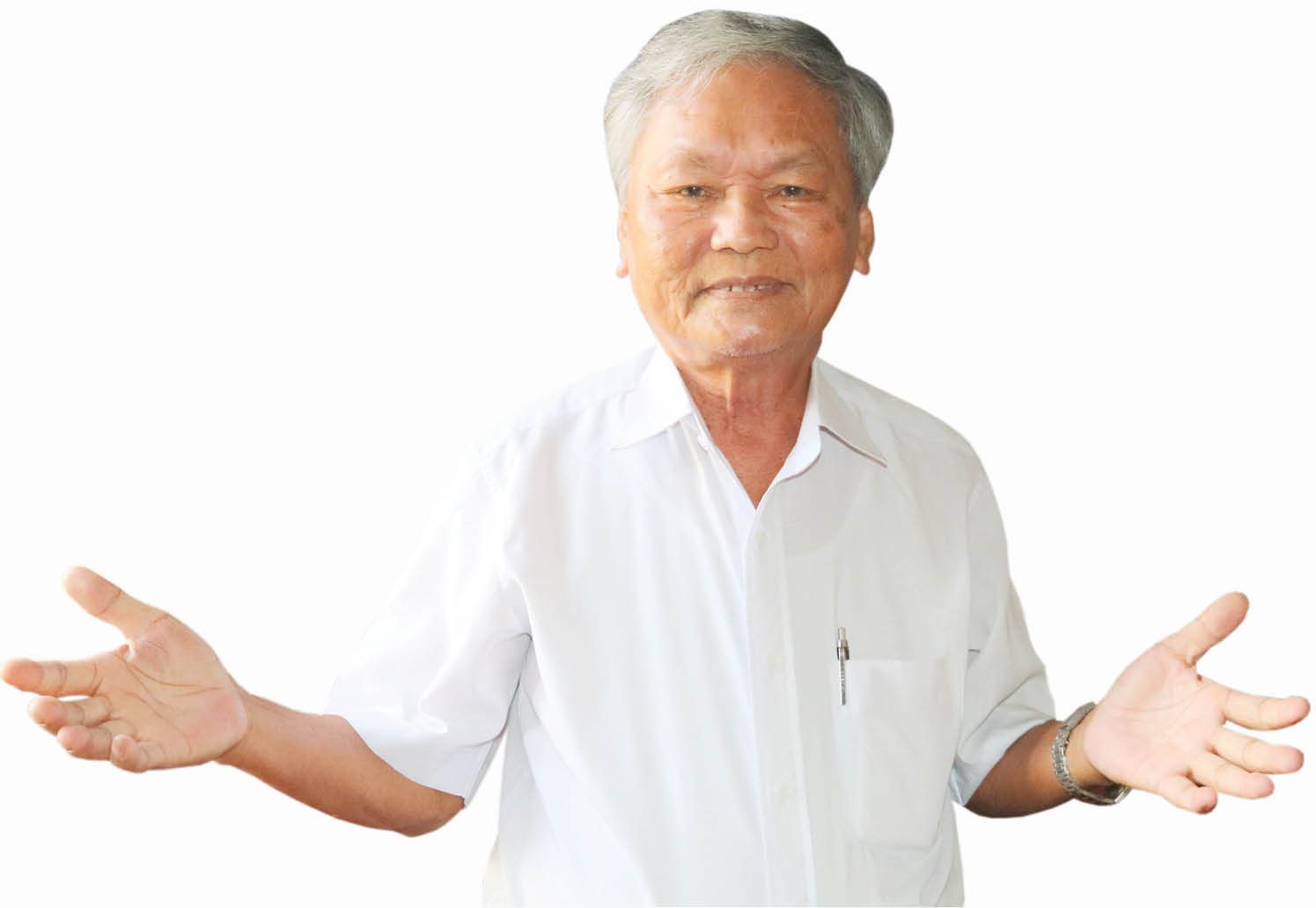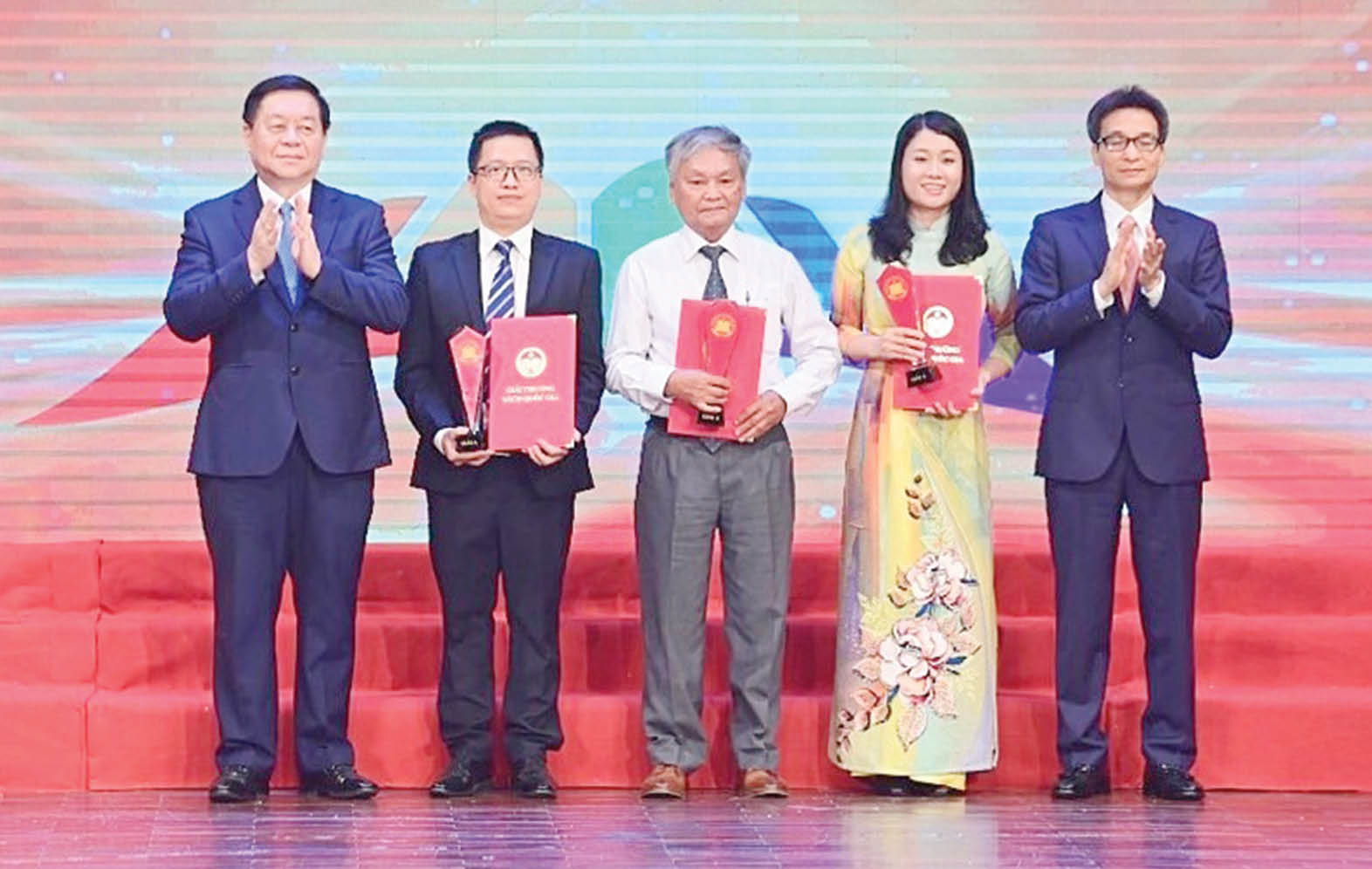“Translating is quiet work. This prize means my effort has been recognized by the award committee; it is my great honor,” said Phan Dang in a conversation with Thua Thien Hue Weekend.

Phan Dang, lecturer and researcher
According to Phan Dang, “Hoang Viet Nhat thong Du dia chi” is like a “map in words” of Vietnam in early 19th century. It was the first book about geography and history of a country of the Nguyen dynasty compiled by Le Quang Dinh in 1803 and finished in 1806 as emperor Gia Long’s request. The book confirmed the location of the country, showing the integrity and the desire for independence and reunification of our country.
For years you’ve been working in a quiet manner. How did you feel when you knew you was awarded?
I knew nothing about the contest indeed. The World Publishing House and the Thai Ha Books did all the application for me. I was informed of the award only 3 days before traveling to Hanoi to receive the prize.
My first reaction was great happiness because it means our effort is recognized. I want to say thanks to everybody who helped me, either directly or indirectly, especially to Phan Truong Quoc Trung, a Hue-native Buddhist monk at Vinh Nghiem Buddhist Institute at Long Hung Pagoda (in Soc Son, Hanoi) for his proofreading, which made me feel more confident about my work.

Nguyen Trong Nghia, Secretariat Member of Party Central Committee (left), and Deputy Prime Minister Vo Duc Dam (right) were awarding Prize A for the group on 3rd October, the translator Phan Dang is in the middle. Photo provided by the Publishing Bureau
What made you devote your time and energy to translating the book “Hoang Viet Nhat thong Du dia chi”?
There has been some inaccurate information about the birth of the book. It is a long and interesting story.
In the year 2000, Phan Thanh Hai (presently Director of Thua Thien Hue Culture and Sports Bureau) brought a copy of the book to Hue from Hanoi. Huynh Dinh Ket (passed away), a former member of Hue City Culture and Information Bureau, told me about that book and advised me to translate and introduce it.
It was a copy of a handwritten book which had never been printed before at the Institute of Han NomStudies, comprising 1,268 pages. Since some pages were missing, I immediately traveled to Ha Noi to look for them. Luckily the Han Nom Library assisted me a lot. Realizing it was a precious document, I began to translate and note in early 2001.
In 2003 Le Dan, Director of the Thuan Hoa Publishing House, told me he wanted to print it. In 2004 after revising the draft, I gave it to the publishing house and requested including the original Chinese letters in the book. Maybe because of the thickness of the book and my request about the Chinese letters, the Thuan Hoa Publishing House collaborated with the East-West Culture and Language Center headed by Doan Tu Huyen (passed away).
So in 2005 “Hoang Viet Nhat thong Du dia chi” was printed for the first time and introduced to the reader. To be frank, that print was not very nice to my expectation, and there were some places in the book which I did not satisfy with either. But I was happy because the Chinese part was included. I thought it was a way for those who liked the work to preserve it without worrying about its loss or oblivion.
Though the book had been printed and published, and though I had spent lots of effort, reading it again I still found some defects and wanted to brush it up. In 2016 in a conversation with Tran Dinh Hang (Head of the Vietnam Division of Culture and Arts in Hue) we decided to have the edited draft reprinted. In late 2020 the book was printed again and published by the World Publishing House and Thai Ha Books.
What did you mean when you said you didn’t live on translating, sir?
When I was in Hanoi, someone asked me what a translator’s life was like. I said I’d never lived on translating. I lived on teaching.
Translating for me is just supplemental. My main work is teaching. I do it just because of my love for language. So far I have complied, translated and introduced more than ten books of various genres. But I always think translating is just supplemental for my teaching at university level. Moreover, I want to contribute my little part to the cause of conserving, introducing and promoting our cultural heritage.
Studying history and geography is not easy; translating historical and geographical materials is even harder, why are you so interested in it?
According to Chinese-Vietnamese translators, texts on literature and philosophy are the hardest to translate. Texts on history and geography are easier, but translators must have some knowledge of those areas. They need certain knowledge of cultures; words and their meanings are not sufficient.
I learned Chinese at an early age. Of course it was not enough. Later at university my Han Nom was significantly improved. Becoming a lecturer at university, I was assigned to teach Vietnamese middle-age literature and Han Nom. All the works in that era were written in Han Nom, which gave me chances to translate necessary materials for my lectures.
That was a good opportunity for my career. Later I participated in translating and studying a few ancient documents and books, and introduced the ancient culture to the reader.
When you teach literature, you always connect it with history and want to spread history to the young. Is it because of your passion for history?
That’s right. While teaching, I always tell my students that the Vietnamese literature is closely connected with history. A man who studies history may not be interested in literature, but those who study literature must know history because all the most significant literal works of Vietnam are connected with certain historical events.
As a lecturer of Vietnamese middle-age literature, I always pay attention to studying history with a view to connecting literature and history. Only in that way can literature penetrate into students and the society.
How about your intention or your cherished plans in the coming time?
I’m now over 70; so I don’t have any long-term plans. But if health permits, I’ll continue with researching and brush up my finished drafts and have them printed. As for translating, I’m now concentrating on ancient Buddhist documents since I see though it’s a very important field, few people notice it.
Thank you, sir for the conversation.
By HUU PHUC
